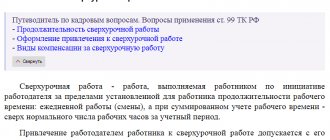Article 29 of the Code of Civil Procedure of the Russian Federation. Jurisdiction at the choice of the plaintiff (current version)
1. A claim against a defendant whose place of residence is unknown or who does not have a place of residence in the Russian Federation may be brought to court at the location of his property or at his last known place of residence in the Russian Federation.
2. A claim against an organization arising from the activities of its branch or representative office may also be filed in court at the address of its branch or representative office.
3. Claims for the collection of alimony and for establishing paternity may also be brought by the plaintiff to the court at the place of his residence.
4. Claims for divorce may also be brought to the court at the place of residence of the plaintiff in cases where there is a minor with him or, for health reasons, it is difficult for the plaintiff to travel to the place of residence of the defendant.
5. Claims for compensation for damage caused by injury, other damage to health or as a result of the death of the breadwinner may also be brought by the plaintiff to the court at the place of his residence or the place where the damage was caused.
6. Claims for the restoration of pension and housing rights, return of property or its value, related to compensation for losses caused to a citizen by illegal conviction, illegal criminal prosecution, illegal use of detention as a preventive measure, recognizance not to leave, or illegal imposition of administrative punishment in the form of an arrest, may also be presented to the court at the place of residence of the plaintiff.
6.1. Claims for the protection of the rights of the subject of personal data, including compensation for losses and (or) compensation for moral damage, may also be brought to the court at the plaintiff’s place of residence.
6.2. Claims to stop the search engine operator from issuing links allowing access to information on the Internet information and telecommunications network may also be brought to the court at the plaintiff’s place of residence.
6.3. Claims for restoration of labor rights may also be brought to the court at the plaintiff’s place of residence.
7. Claims for the protection of consumer rights may also be brought to the court at the place of residence or place of stay of the plaintiff or at the place of conclusion or place of execution of the contract, except for the cases provided for in part four of Article 30 of this Code.
8. Claims for compensation for losses caused by collisions of ships, recovery of wages and other amounts due to ship crew members for work on board the ship, repatriation costs and social insurance contributions, collection of remuneration for providing assistance and rescue at sea may also be brought in the court at the location of the defendant's ship or the ship's home port.
9. Claims arising from contracts, including labor contracts, which indicate the place of their execution, may also be brought to the court at the place of execution of such agreement.
10. The choice between several courts, which, according to this article, has jurisdiction over the case, belongs to the plaintiff.
You can send a message to the executive authorities of the city of Moscow as part of a pre-trial appeal.
Applicants have the right to appeal the actions or inactions of officials of the Moscow Civil Registry Office and its separate structural divisions (registry office departments, wedding palaces, archives and information department) in pre-trial and judicial proceedings.
In pre-trial proceedings, applicants can appeal against the actions or inactions of officials:
- civil registry offices, wedding palaces, archives and information departments - to the Moscow Civil Registry Office, Main Directorate of the Ministry of Justice of the Russian Federation for Moscow; Ministry of Justice of the Russian Federation;
- Office of the Civil Registry Office of Moscow - to the Main Directorate of the Ministry of Justice of the Russian Federation for Moscow; Ministry of Justice of the Russian Federation.
Applicants have the right to appeal against the actions (inaction) of officials of the State Budgetary Institution MFC of the city of Moscow and its structural divisions - civil registry offices - MFC in pre-trial and judicial proceedings.
In pre-trial proceedings, applicants can appeal against the actions or inactions of officials:
- civil registry offices - MFC - in the State Budgetary Institution MFC of the city of Moscow, Main Directorate of the Ministry of Justice of the Russian Federation for Moscow; Ministry of Justice of the Russian Federation;
- State Budgetary Institution MFC of Moscow - to the Main Directorate of the Ministry of Justice of the Russian Federation for Moscow; Ministry of Justice of the Russian Federation.
The complaint must be submitted in writing on paper or electronically.
The complaint must contain:
— the name of the body providing the public service, the official of the body providing the public service, or the civil servant, decisions and actions (inactions) who are being appealed;
- last name, first name, patronymic (the latter - if available), information about the place of residence of the applicant - an individual, as well as contact telephone number(s), email address(es) (if available) and postal address to which the application should be sent response to the applicant;
— information about the appealed decisions and actions (inaction) of the body providing the public service, an official of the body providing the public service, or a civil servant;
— arguments on the basis of which the applicant does not agree with the decision and action (inaction) of the body providing the public service, an official of the body providing the public service, or a civil servant.
The applicant may submit documents (if any) confirming the applicant’s arguments, or copies thereof.
The applicant’s complaint received by the Moscow Civil Registry Office or the Moscow State Budgetary Institution MFC must be considered within 15 working days from the date of registration of such a complaint.
The period for consideration of the complaint is 5 working days from the date of its registration in cases of appeal by the applicant:
- refusal to correct typos and errors made in documents issued as a result of the provision of public services;
- violation of the deadline for correcting typos and errors.
Based on the results of consideration of the complaint by an authorized official of the Moscow Civil Registry Office or an official of the State Budgetary Institution of the MFC of the city of Moscow, a decision is made to satisfy the applicant’s demands or to refuse to satisfy the complaint.
The Supreme Court explained how to choose the jurisdiction of a labor dispute
Igor Kandarov*, while working at Russian Railways OJSC, received an industrial injury. According to the rules of alternative jurisdiction (which is chosen by the plaintiff; Article 29 of the Code of Civil Procedure), he filed a claim with the Tashtagol City Court of the Kemerovo Region to declare the accident report untrue, as well as compensation for moral damage. At the court hearing, a representative of Russian Railways JSC stated that the parties had established contractual jurisdiction (Article 32 of the Code of Civil Procedure) - under the employment contract between Kandarov and Russian Railways JSC, individual disputes between an employee and an employer are considered in the Kuibyshevsky District Court of Novokuznetsk. It was there that the defendant asked to transfer the claim, which the court did. The Kemerovo Regional Court confirmed the legality of such a decision, additionally indicating that the agreement to change the territorial jurisdiction of individual labor disputes was concluded by the parties in the manner prescribed by law before filing the claim, was not challenged and was not recognized as invalid.
CASE No. 81-КГ18-4
PLAINTIFF: Igor Kandarov*
DEFENDANT: JSC Russian Railways
ESSENCE OF THE DISPUTE: Determination of jurisdiction
DECISION: To recognize the decisions of the courts on the transfer of the case to jurisdiction and on its consideration on the merits as illegal, cancel them, and send the case for consideration on the merits to a court of the plaintiff’s choice
Then Kandarov appealed to the Supreme Court, which came to the conclusion: workers’ claims for compensation for harm caused to health in connection with the performance of work duties can be filed in court at the employee’s choice - at his place of residence or at the place of performance of his work duties, and disputes related to causing harm - also at the place where the harm was caused (Articles 23-24, 28-29 of the Code of Civil Procedure). Such legal regulation creates an additional guarantee of judicial protection of the rights and legitimate interests of the employee as the economically weaker party in the labor relationship. The terms of the employment contract limit the employee’s rights in comparison with the provisions of the Civil Procedure Code and therefore cannot be used (Article 9 of the Labor Code, Article 47 of the Constitution). Therefore, the Supreme Court declared the appealed court decisions illegal and canceled them.
However, by this time, the Kuibyshevsky District Court had already considered Kandarov’s dispute and refused to satisfy his claim, with which the Kemerovo Regional Court agreed. Since the acts of these courts prevent the implementation of Kandarov’s right to judicial protection in the court whose jurisdiction the case is assigned by law, the Supreme Court also canceled them. As a result, the employee’s claim was sent for a new trial on the merits to the Tashtagol City Court (No. 81-KG18-4). It has not yet been reviewed at this time.
“The Supreme Court’s determination gives additional guarantees to workers when considering cases related to the restoration of violated labor rights and other directly related relations. The privilege of choosing the court in which the case will be heard belongs to the employee, not his employer. In the court chosen by the employee, there will most likely be more opportunities to prove his case - for example, in terms of attracting witnesses, obtaining reference materials in a certain area, speed of execution of documents necessary to protect rights,” says Denis Frolov, head of the Commercial Practice of BMS Law Firm. . “The ability to choose jurisdiction creates optimal conditions for employees and additional guarantees of their judicial protection. And the condition of the employment contract on the jurisdiction of disputes by a certain district court limits what is guaranteed by Art. 47 of the Constitution, the plaintiff’s right to access to justice and judicial protection worsens his situation,” says STREAM lawyer Anifat Babaeva.
In October 2021, the Plenum of the Supreme Court proposed making contractual jurisdiction available only to foreign persons. In the current conditions, when everyone can use it, this leads to an increased load on the courts of Moscow and St. Petersburg, explained the highest court. However, the working group decided to abandon this rule and leave the possibility of changing jurisdiction by agreement for everyone. The corresponding bill is now awaiting its second reading (see “Procedural Revolution” passed amendments”).
* – first and last names have been changed by the editors.
- Alina Mikhailova
- Supreme Court of the Russian Federation
Article 49 of the RF IC. Establishing paternity in court (current version)
The commented article states that in the event of the birth of a child to parents who are not married to each other, and in the absence of their joint application for recognition of paternity or a statement from the child’s father, the origin of the child from a specific person is established in court at the request of one of the parents, as well as other persons indicated in the commented article. The latter include the child’s guardian (trustee), the person who is dependent on the child, as well as the child himself, subject to two conditions: firstly, his application is needed, and secondly, the child must reach the age of majority.
About being dependent is stated in paragraph 3 of Art. 9 of the Law on Labor Pensions, according to which members of the family of a deceased breadwinner are recognized as dependent on him if they were fully supported by him or received assistance from him, which was a constant and main source of livelihood for them. Consequently, irregular, episodic, insignificant material assistance cannot serve as a basis for recognizing a person as a dependent.
Establishment of paternity in such cases is carried out through a lawsuit according to the rules of civil procedural legislation. In most cases, the plaintiff is the child's mother, and the defendant is the person who, according to the mother, is his father.
When establishing paternity in court, one should take into account Resolution of the Plenum of the Supreme Court of the Russian Federation dated May 16, 2021 No. 16 “On the application of legislation by courts when considering cases related to establishing the origin of children.” According to paragraph 19 of the said Resolution, in accordance with Article 49 of the RF IC, when establishing paternity, the court takes into account any evidence that reliably confirms the origin of the child from a specific person. Such evidence can be obtained from explanations of the parties and third parties, testimony of witnesses, written and material evidence, audio and video recordings, expert opinions (paragraph two of part 1 of Article 55 of the Code of Civil Procedure of the Russian Federation).
And in paragraph 20 of the said Resolution it is noted that in order to clarify issues related to the origin of the child, the court has the right, taking into account the opinions of the parties and the circumstances of the case, to order an examination, including molecular genetic testing, which allows establishing paternity (maternity) with a high degree of accuracy . At the same time, courts should take into account that the opinion of an expert (experts) on the issue of the origin of a child is one of the pieces of evidence; it does not have pre-established force for the court and is subject to assessment in conjunction with other evidence available in the case (part 2 of Article 67, part 3 Article 86 of the Code of Civil Procedure of the Russian Federation).
Situations are possible when one of the parties (usually the defendant), when considering cases related to establishing the origin of children, avoids participating in the examination. In paragraph 21 of the said Resolution of the Armed Forces of the Russian Federation o.
It is important to emphasize that when considering such cases, the court takes into account any evidence that reliably confirms the origin of the child from a specific person. In contrast to previous legislation, the Family Code of the Russian Federation does not contain a clear list of circumstances that must be taken into account by the court when making a decision in the case of establishing paternity. However, these circumstances will undoubtedly be taken into account when considering specific cases. These include:
cohabitation and management of a common household by the child’s mother and his intended father at the time of the child’s conception;
joint upbringing or maintenance of a child by his mother and putative father;
recognition of paternity by the defendant, reliably confirmed by evidence;
witness statements and other evidence.
According to Part 1 of Art. 55 of the Civil Procedure Code of the Russian Federation, evidence includes explanations of the parties and third parties, testimony of witnesses, written and material evidence, audio and video recordings, and expert opinions. Evidence may include letters, questionnaires, statements, witness statements, physical evidence, and other factual data (for example, the husband’s infertility, being on a business trip at the time of conception, etc.). Explanations of the parties and third parties, testimony of witnesses can also be obtained through the use of video conferencing systems.
Thus, the court in this case can use all methods and means known to modern science to establish paternity, including forensic medical examinations. With the help of forensic medical examinations, the time of conception (forensic gynecological examination), the defendant’s ability to have children, and the presence (absence) of a family relationship with the child (biological, molecular genetic examination) can be established.
Consequently, any new discoveries that help to establish with 100% accuracy the origin of a child from a specific person can be used by the court. In particular, gene fingerprinting is recognized as such (its accuracy is 99.99 percent), but the latter is quite expensive and therefore not accessible to everyone. When implementing it, for the evidentiary identification of a person and the establishment of his consanguinity, during the forensic examination of physical evidence, individualizing characteristics are identified at the level of the human genetic matrix - cellular DNA.
Thus, in contrast to the previously effective family legislation (Part 2 of Article 48 of the Code of the Russian Federation), in order to establish the origin of a child, the court must establish a single fact - any evidence that reliably confirms the origin of the child from a specific person.
A forensic gynecological examination is necessary in cases where the defendant claims that he could not be in a close relationship with the child’s mother at the time of conception, for example due to going on a business trip, etc. During the examination, medical documents are examined: an individual card of the pregnant woman, a birth history, an individual card of the newborn.
Forensic biological and molecular genetic examinations are carried out in accordance with Order of the Ministry of Health and Social Development of Russia dated May 12, 2010 N 346n “On approval of the Procedure for organizing and conducting forensic medical examinations in state forensic institutions of the Russian Federation.”
A so-called blood test is also carried out, which cannot give an exact positive result as to whether the person is the father. However, it can give a 100% negative result in cases where certain blood types of the child and the father do not match.
In cases of establishing paternity, it is possible to conclude a settlement agreement between the plaintiff and the defendant. This occurs in cases where the child’s mother declares a waiver of the claim in connection with the consent of the alleged father to submit a joint application to the registry office for voluntary recognition of paternity and, as a result, a settlement agreement is reached between them, approved by the court.
Comment source:
“ARTICLE-BY-ARTICLE COMMENTARY TO THE FAMILY CODE OF THE RUSSIAN FEDERATION” UPDATED
S.P. Grishaev, 2017







